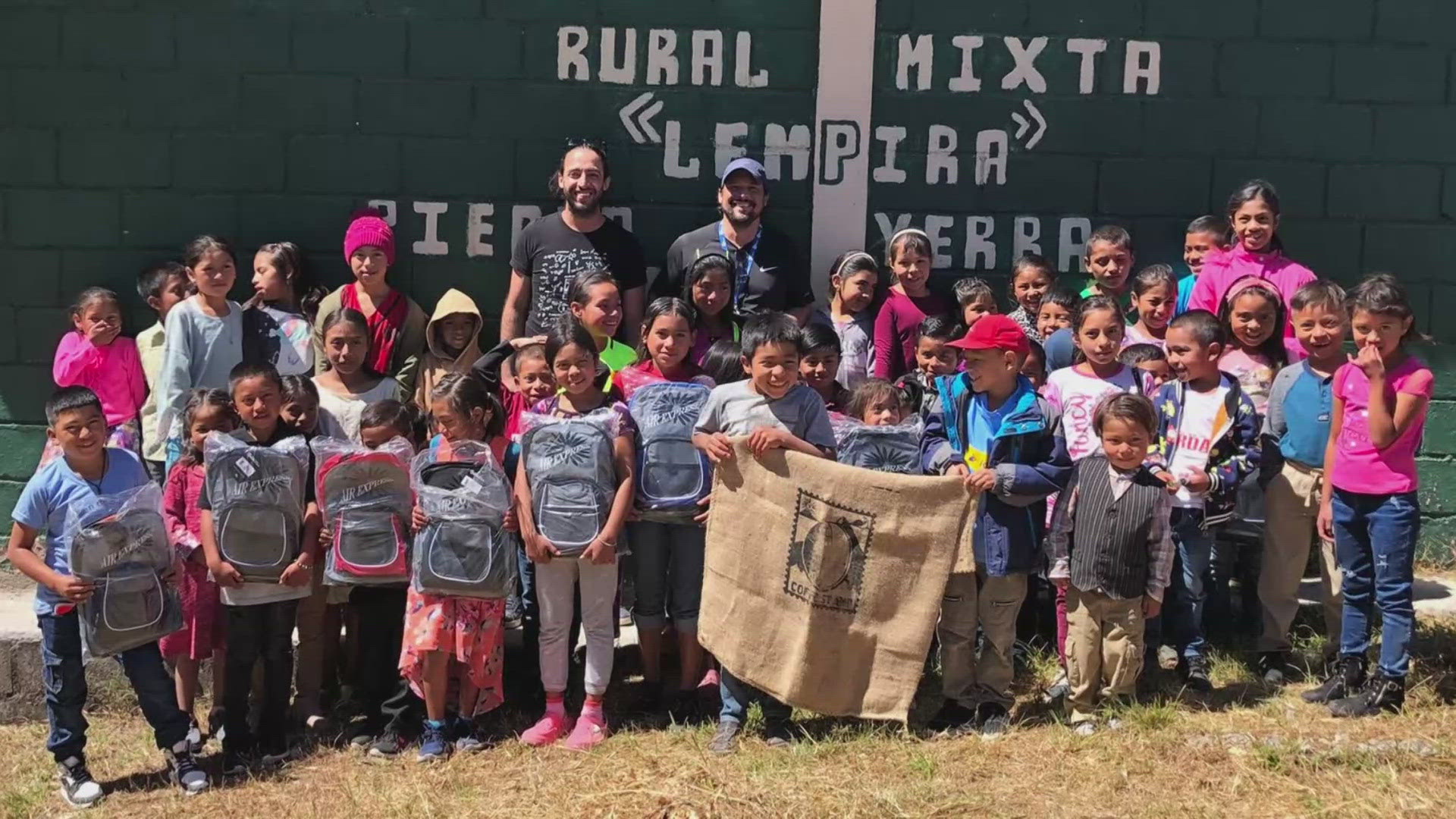ST. LOUIS, Missouri — Just off the busy street corner of South Jefferson and Gravois, along the historic Old Route 66, signs of life are stirring inside a small storefront that used to be an abandoned tire shop.
Patrick Clapp, the owner of the growing coffeeshop, opens his gates at 6 a.m. every morning and begins to set out tables and chairs on the sidewalk patio to welcome the crowd of regulars.
Within a few hours, tired commuters grab coffee to-go on their morning rush to work while the booths and tabletops fill up with customers who stop to savor the spices in a well-seasoned asada empanada. A sign near the cashier offers customers a rare treat of "Nacatamal," a special tamale-like dish with green olives, carrots, chickpeas, and shredded pork bursting out of steamed corn cakes. The kitchen serves the seasonal special on a banana leaf with a lime wedge. The first bite instantly turns first-time passers by into regular customers.
"You see this block five years ago (was) all boarded up windows," Clapp said, recalling when he purchased it back in 2019. "Now it's a thriving, growing block with a lot of residents moving across the street."
Before customers line up for doors to officially open at 7:30, Clapp quietly escapes the TV camera to greet a daily visitor with fresh handmade empanadas and a large cup of coffee. A nearby neighbor who slept on the streets and can't afford to pay for his meal leaves with a grateful smile.
"The majority of people around the world are still struggling for basic needs," Clapp said. "Water, food, healthcare, education."
He knows the desperation of that struggle first-hand. Before he moved to New Orleans to build homes in 2012, he grew up in a remote village in Honduras where running water was considered a luxury.
"I came here knowing nobody, barely speaking English," he said. "People still, where I was from, they still collect water bottles, buckets. You got to boil it for drinking. And it's a constant fear just to not have water."
He doesn't want for water anymore. His thriving business, Coffeestamp, is making its mark. The understated logo, an ink-pressed coffee bean inside the square frame of a mail stamp, is quickly becoming more well known beyond the Fox Park neighborhood in South St. Louis.
Customers place online orders for the hand-picked coffee beans from states all across the country, including a growing number of buyers in California. The wide appeal seemed to come as something of a pleasant surprise to Clapp, who planted the first seeds of his American dream in 2019 when he started selling bags of coffee beans on weekends at the historic Soulard Farmer's Market.
Now, the mid-morning rush keeps baristas busy at Coffeestamp's second satellite shop on the campus of Washington University where the upstart operation recently expanded.
"Everything started as a pop up event for Hispanic Heritage Month," Clapp said about the university's invitation back in 2022. "They liked it so much, they invited us back."
Another campus coffeeshop had recently shuttered during the pandemic, so when students swarmed to Coffeestamp's, the school offered them a chance to open a permanent fixture on campus.
"It's one of the best opportunities ever had," he said.
His path to success didn't come all at once. It was a long and winding road with twists and turns along the way.
"It takes a lot of time, patience, and most importantly, to not give up," Clapp said about the early days of the business he co-founded with his brother Spencer.
Not long after moving from Honduras to New Orleans, Clapp relocated to St. Louis and joined a local carpenter's union hall. He kept building homes long enough to save up enough money to start selling coffee beans on the side. Eventually, he and his brother had enough money socked away to purchase some more roasting gear and the storefront in late 2019.
"We actually got our loan approved March 14," Clapp said. "That was when the city was declaring the shutdown emergency."
Because the business hadn't hired any employees yet, it didn't qualify for federal aid. Five months later, he opened his doors for the first time during a global pandemic.
Now the profits from his expanding business has global impact. He uses a portion of the proceeds to go back home and build water infrastructure for local school kids in Honduras.
"So what we did was supply sanitary bathrooms and water sinks they didn't have," he said.
"My personal goal in life is to be able to change my surrounding, especially like the people in the most need," Clapp said. "You know, the people who have been left behind."
And in an old industrial auto neighborhood left behind, that ingredient of generosity brings a spark of optimism for the future, and comes with gratitude for those who came before.
"We wanted to bring back the idea of a cool looking industrial building, because this whole block used to be related to the automobile industry back in the '50s, '60s," he said.
An industrial grade conveyor belt stretches up to the second floor. These days, instead of hauling rubber tires, it helps baristas comfortably ease a 150-pound burlap bag of Honduran coffee beans downstairs.
"The people who used to live in this neighborhood, or the people who were the tenant in this building, they were thriving back in the day," Clapp said. "And, you know, the only thing we can do is to match their hard work and try to improve it a little bit, you know?"

